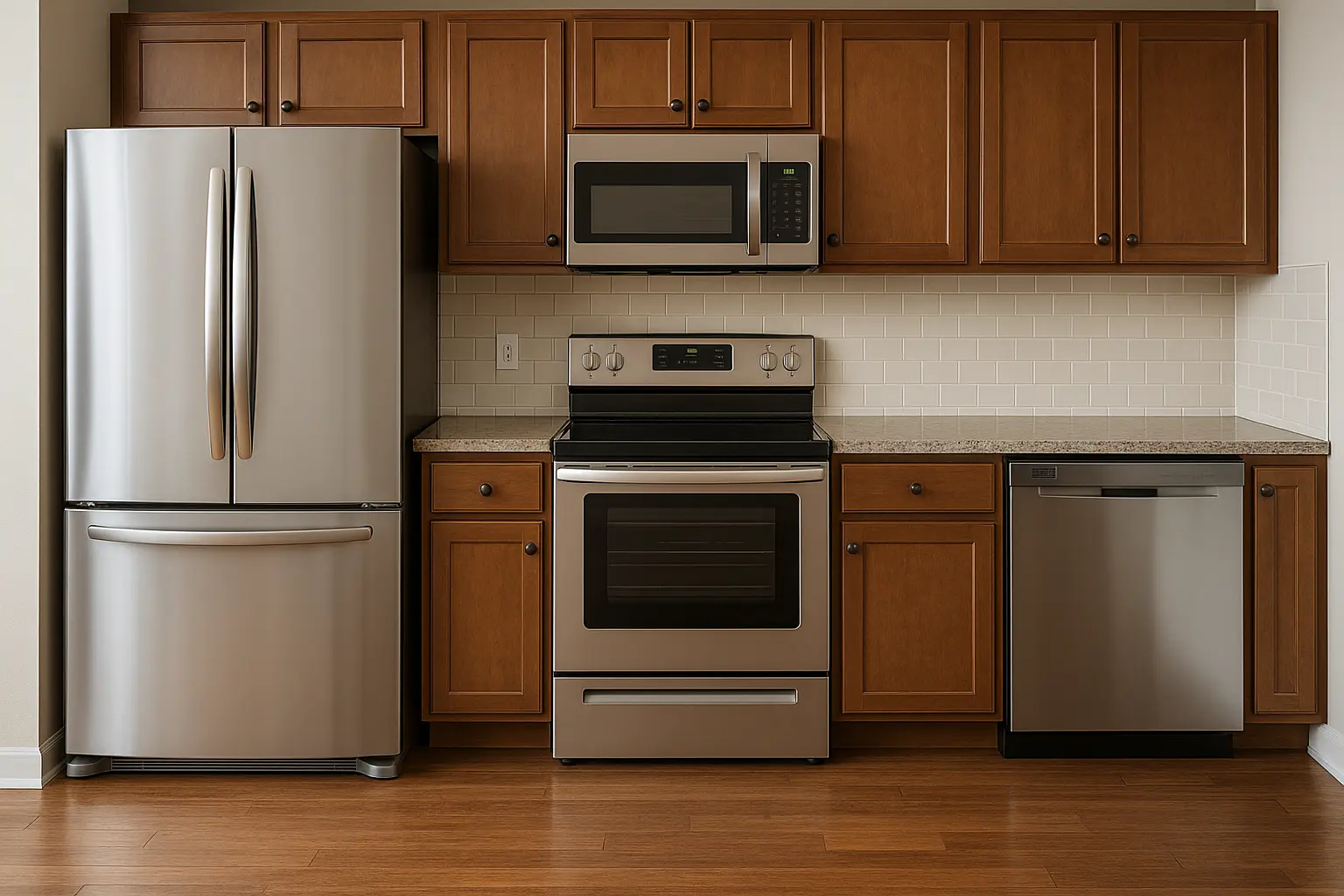An estimation of the number of appliances found in an average household is perhaps more than 24, ranging from a refrigerator to a robotic vacuum. In the past, these appliances were merely helpers of sorts in the household. Today, they have all evolved into smart energy-efficient appliances that make choices for your comfort and productivity, even touching upon sustainability.
This blog delves into the rising importance of home appliances, the benefits, common errors in purchase decisions, trends in the making, and actionable tips so you can make savvy choices, whether it means upgrading one single appliance or an entire kitchen.
Why Appliances Matter More Than Ever
Modern-day living is just unthinkable without appliances. With the facility to save time and effort, the appliances now contribute to energy efficiency, food preservation, air and water quality, and, in some scenarios, even mental well-being. It is the relief of stress of washing laundry caused by an inefficient machine; the smart oven takes over cooking with a couple of finger taps; energy-efficient HVAC systems could cut your bills down by 30%.
An understanding of the strategic ranking these appliances hold will not only uplift your living conditions, whether you own or rent, but also ultimately create wealth for you in the long run.
The Advantages of Purchasing High-Quality Appliances
1. Energy Efficiency
LG, Samsung, and Whirlpool now make appliances with Energy Star labels to improve energy efficiency. For example, an efficient dishwasher may use just 3 gallons per cycle, while washing by hand uses about 27.
2. Comfort and Automation
Smart appliances such as iRobot Roomba or Samsung Family Hub refrigerators allow you to control the appliances remotely, set timers, receive alerts, and reorder groceries.
3. Health and Hygiene Enhancements
Various appliances, from air purifiers equipped with HEPA filters to dishwashers that sanitize with UV, are designed to create a healthy environment in which to live.
4. Sustainability and a Lower Carbon Footprint
Energy-efficient appliances help reduce waste, emissions, and environmental impact, especially when combined with sustainable use, such as off-peak operation or solar energy utilization.
The Step-by-Step Guide: The Right Choice of Appliance
Step 1: What Are Your Priorities?
Is speed or efficiency, saving on a budget, or tech integration your goal? Having a set list of needs for a household will help filter out unnecessary features.
Step 2: Researching and Comparing Brands
Use a comparison tool from Consumer Reports, Wirecutter, or Good Housekeeping to compare real-world performance, warranty, and customer support.
Step 3: Check Energy Ratings and Smart Features
Look for:
- Energy Star certification
- Wi-Fi/Bluetooth connectivity
- Noise levels (dB)
- Warranty length and coverage for service
Step 4: Measure Twice, Buy Once
Ensure that appliances fit into your kitchen, laundry, or hallway functionally and aesthetically.
In a More Realistic Setting: The Case of Smart Appliances
Case Study: The Wilson Family Upgrade
This family of five in Austin, Texas, had just finished buying new appliances to replace ten-year-old models with the ThinQ smart range from LG. Within the first three months:
- They noticed a 22% drop in their utility bill.
- There was less food waste because of smart storage alerts.
- They saved time during busy mornings using voice commands through Google Assistant to preheat their ovens and run laundry cycles.
The transition qualified them for local energy rebates of $350, a win-win solution for the environment and their wallets.
Actionable Tips For Smarter Appliance Usage
- Run dishwashers and washing machines only when they are full
- Use programmable thermostats and timers
- Unplug electronics when not in use to save phantom energy use
- Always get those filters and vents clean to prevent lower appliance performance
- Consider seasonal goods during off-seasons, such as fall or early spring
Common Mistakes to Avoid
- To buy for price alone: Low-price alternatives could accrue long-term maintenance or energy costs.
- Neglecting service accessibility: Be sure that service parts and repair professionals are readily available for your selected brand.
- Over-featuring: Is a microwave with 30 settings one iota more useful than a good microwave with five settings?
- Disregarding user reviews: Always check third-party reviews for performance insights.
Future Trends: What Will Follow Home Appliances?
1. AI-Based Automation
Expect Appliances to learn user behavior and automatically optimize performance. Inter alia, Bosch and GE Profile are testing AI-integrated cooking and laundry systems.
2. Circular Economy Design
Companies like Electrolux develop appliances for disassembly so that individual components may easily be recycled or upgraded.
3 Voice and Gesture Control
Next-generation appliances are expected to support operations with hands-free access through a smart speaker or gestures. Ideal for accessibility and hygienic purposes.
Conclusion: Powering Your Lifestyle with Purpose
Appliances readily distinguish themselves as tools, yet they can also expand the scope of livelihood, nurture the environment, and secure financial well-being. Being the right appliance to a user can cost them hourly labor, lessen the energy bills considerably, and sometimes save their lives.
Ready for some home transformation? Go ahead! Start by questioning what you currently have in the house, researching high-efficiency appliances to upgrade to, and embedding smarter habits in the course of your working day. Subscribe to our newsletter, or hit out our appliance planning checklist for product reviews, buying guides, and top appliance maintenance tips.




